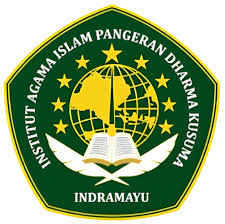Transformasi Ekonomi melalui Pendekatan Akhlaq dan Hukum Islam
Ekonomi, Akhlaq dan Hukum Islam
DOI:
https://doi.org/10.55656/tjmes.v6i2.246Keywords:
Economic Transformation, Islamic Ethics, Islamic Law, Economic Justice, Sustainable Development.Abstract
The transformation of the economy through the approach of Islamic ethics and law has been a central focus in contemporary economic discourse. This research explores the impacts of incorporating moral values and principles of Islamic law in reshaping economic paradigms. This approach emphasizes the importance of justice, transparency, and social responsibility within the economic system. In-depth analysis of Islamic economic concepts reveals the potential to address economic inequalities and promote sustainable development. Furthermore, the application of Islamic ethics and law can provide an ethical foundation for responsible and sustainable business practices. The findings suggest that sustainable economic transformation requires the integration of Islamic values with modern economic practices. Relevant policy implications are also discussed to support the implementation of these concepts within the current global economic context.
Keywords : Economic Transformation, Islamic Ethics, Islamic Law, Economic Justice, Sustainable Development.
References
Abuznaid, S. (2009). Business ethics in Islam: The glaring gap in practice. International Journal of Islamic and Middle Eastern Finance and Management, 2 (4), 278–288.
Anwar, M. (2022). Green Economy Sebagai Strategi Dalam Menangani Masalah Ekonomi Dan Multilateral. Jurnal Pajak Dan Keuangan Negara, Vol.4, No.15, 343–356.
Bappenas. (2018). Masterplan Ekonomi Syariah Indonesia 2019-2024: Hasil Kajian Analisis Ekonomi Syariah di Indonesia. Kementerian Perencanaan Pembangunan Nasional/ Badan Perencanaan Pembangunan Nasional.
Dusuki, A. W., & Abdullah, N. I. (2007). Maqasid al-Shari’ah, maslahah, and corporate social responsibility. The American Journal of Islamic Social Sciences, 24 (1), 25–45.
Hanafi, M. (2017). Persepsi Masyarakat terhadap Integrasi Akhlaq Islami dalam Sistem Hukum. Yogyakarta: Gadjah Mada University Press.
Hasan, Z. (2014). Islamic economic ethics: An outline of its principles and scope. Journal of Islamic Economics, Banking and Finance, 10 (2), 33–50.
Hussain, A. (2016). Sharia Principles in Modern Legal Systems. Oxford University Press.
J. Moleong, L. (2013). Metodologi Penelitian Kualitatif. Bandung: Rosdakarya.
Kahf, M. (1999). The Performance of the Institution of Zakah in Theory and Practice. International Journal of Islamic Financial Services, 1 (1).
Khurshid, K. (2010). Ethics and economics in Islam. Journal of Business Ethics, 91 (1), 91–106.
Leavy, Patricia (ed.). (2020). The Oxford Handbook of Qualitative Research (2nd edn). Oxford Handbooks. https://doi.org/10.1093/oxfordhb/9780190847388.001.0001
Lewis, M. K., & Latifa M, A. (2001). Islamic Banking. Edward Elgar Publishing.
Maududi, A.A. (2015). The Islamic Law and Constitution. Lahore, Pakistan: Islamic Publications.
Pressman, J. L., & Wildavsky, A. B. (1984). Implementation: How Great Expectations in Washington Are Dashed in Oakland. University of California Press.
Sumarta, Burhandin, & Budiyanto, T. (2024). Maqasid Al-Syariah Mendorong Keadilan Dan Keseimbangan Dalam Hukum Islam. Khulasah: Islamic Studies Journal, Vol. 6 No. 1.
Sumarta, Edy, S., & Mardiyana. (2022). Sosiologi Hukum Islam: Antara Kajian Metodologis, Teoritis, dan Praktis. Indramayu: Penerbit Adab.
Tarigan, A. A. (2015). Dari Etika Ke Spiritualitas Bisnis Tela’ah Isu-isu Aktual dan Masa Depan Pendidikan Tinggi Ekonomi Islam (2nd ed.). Medan: Perdana Mulya Sarana.
Tawwab, M. A., Awaluddin, M., Amiruddin K., & Arifin, A. (2023). Esensi Ilmu dalam Filsafat Ekonomi Islam (Sebagai Wacana). Ekalaya: Jurnal Ekonomi Akuntansi, Volume 1 Nomor 1. https://jurnal.kalimasadagroup.com/index.php/ekalaya/article/download/88/35
Yusuf, M. (2013). Islamic perspectives on economic development. Journal of Islamic Economics, Banking and Finance, 9 (2), 70–86.








